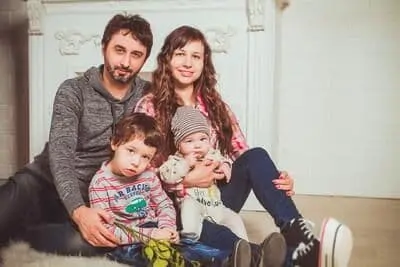Posted by Mark Golden, LICSW
Previously published in "Social Work Voice" Vol
1, No 5 - July/Aug 2018

For 37 years I’ve practiced as a clinical social worker, the last 17 in private practice. Like most who graduated from a ‘clinical practice’ concentration in the 1980’s, I was trained in the basics of psychodynamic oriented therapy with only a brief introduction to family systems thinking. I began my career working with young children and always assumed that the slow therapeutic progress I sometimes encountered was because of my inexperience. One day I had a revelation regarding a case of a young child who would cry each time she was dropped off at daycare. Nothing seemed to help this child who was given the diagnosis of “separation anxiety”. While asking mom to provide details during her drop off, she revealed the following. Mom WAITED until her daughter started to cry. She signaled her in subtle (unconscious) ways. The more her daughter cried, the harder it was for mom to leave. Further exploration revealed that as a single mother she was overwhelmed, depressed and lonely. She desperately missed her daughter during the day. It became clear to me that the mother needed supportive treatment, not her daughter. Since then, I have been a strong advocate for family systems conceptualization and intervention. To further my education, I enrolled in numerous courses at various Family Institutes and went on to become an Approved Supervisor for AAMFT in 2000. Couples/family work has the potential to not only help the identified client, but to use their social network to influence and sustain positive changes. When you are working with a couple or family in distress, your interventions have the potential to impact myriad facets of your client’s life.
A typical couple presents themselves as arguing too much. Is it about money? Parenting? Sex? An affair? As you explore this, the intervention may be fairly straight forward. In most cases, it is not.
Problems in an intimate relationship reveal so much about a person. A comprehensive assessment is essential. Do they have the SKILLS to identify their emotional needs and be responsive to their significant other? Do they have the TRUST to rely on their partner? Do they have the COURAGE to share their wants and desires?
Many of these skills develop at an early age. How would they describe their own parents and what they learned growing up? What impact have their life experiences had on their current relationship? What stressors are they currently dealing with? If the work is done well, and you are able to engage in a meaningful way with your clients, the results can have a powerful impact on a personal level, in their role as intimate partners, as co-parenting partners and indirectly, on their children.
About two thirds of my practice is with individuals and yet I approach this work also using a family system’s “lens”. I am curious from the start about my individual client’s social network. Frequently I develop interventions (homework) which encourage interaction with significant others. For example, “Would you be willing to ask your wife to share her thoughts about you coming to individual therapy?”. These conversations outside of our sessions often bring breadth and depth to our individual work.
There are many family therapy “models” to choose from. My experience has been that most seasoned clinicians who have been introduced to various modalities and varied training experiences eventually evolve an “eclectic” approach.
With the supervision I have offered over the years, I am often asked “what is your model?” I have come to believe that what is most important in family systems work is to develop an approach that is comfortable and makes sense to the practitioner. So, my stock answer now is “I help you develop YOUR OWN model.”
This is not as simple as it sounds. How does one learn to integrate what he or she has been taught and practiced? Is the clinician open to try new things? Do they create and utilize a reliable feedback system to use as a metric for success? If this foundation is established, the practitioner presents to their clients a sense of confidence, hopefulness and relatedness, all of which support a successful outcome. Appreciating the tremendous impact of family systems work can only enhance a therapist’s practice.
>Mark Golden LICSW, attended the Boston University School of Social Work and has worked in a variety of settings as a clinician and supervisor. For the past seventeen years he has been affiliated with Needham Psychotherapy Associates with a full time private practice in Newton. He currently offers a supervision group for clinicians who want to develop skill and confidence working with couples and families. For more information contact him at 617-244-3302 or [email protected]